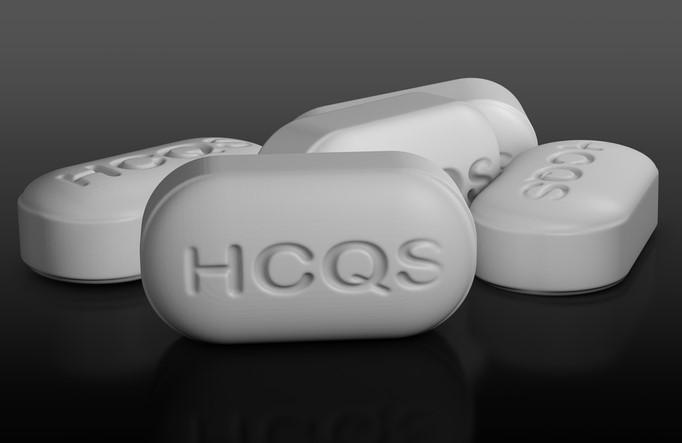The US Food and Drug Administration (FDA) announced today that it has revoked the emergency use authorization (EUA) that it had previously granted for the antimalarial drugs hydroxychloroquine and chloroquine for the treatment of COVID-19, saying that the drugs no longer met the statutory criteria for emergency use.
The agency said on its website that, based on its review of the scientific evidence available for the drugs, hydroxychloroquine and chloroquine "are unlikely to be effective in treating COVID-19 for the authorized uses in the EUA." The FDA also said that because of the serious cardiac events and other side effects associated with the two drugs, the potential benefits no longer outweigh the risks.
The FDA made the decision in consultation with the Biomedical Advanced Research and Development Authority (BARDA), which had originally requested the EUA.
The move comes less than 3 months after the FDA issued the EUA, which allowed hydroxychloroquine and chloroquine to be donated to the National Strategic Stockpile and used in hospitalized adult COVID-19 patients, despite a lack of evidence of efficacy. Early hope that the drugs might help COVID-19 patients was based on a small French study that found they were associated with a reduced viral load in a small number of patients when combined with the antibiotic azithromycin.
Widespread use, but no benefits shown
Since the EUA was issued, thousands of patients in the United States have been treated with hydroxychloroquine and chloroquine in hospitals. And President Donald Trump, who has touted the drugs, said in May that he had been prescribed hydroxychloroquine by his doctor to prevent infection.
But several observational studies have found no benefit in COVID-19 patients in terms of reducing deaths or the most severe outcomes of the disease, such as the need for intubation or intensive care. Some studies have also found that use of hydroxychloroquine and chloroquine is associated with an increased risk of serious heart rhythm complications in some patients. As a result, current US treatment guidelines don't recommend the use of the drugs in hospitalized COVID-19 patients outside of a clinical trial.
In addition, recent results from two eagerly anticipated randomized controlled clinical trials, which are considered the gold standard for evaluating the effectiveness of a medical treatment, found that hydroxychloroquine and chloroquine did not reduce mortality in hospitalized COVID-19 patients in the United Kingdom or prevent COVID-19 in US and Canadian volunteers exposed to infected patients compared with placebo.
In a letter to BARDA, FDA Chief Scientist, Rear Admiral Denise Hinton, said that based on its review of this new information, the FDA had concluded that the suggested dosing regimens for hydroxychloroquine and chloroquine are unlikely to produce an antiviral effect, that the early observation of decreased viral shedding associated with the drugs has not been consistently replicated, and that there is no evidence of a benefit for death or other outcomes.
"FDA has concluded that, based on this new information and other information discussed in the attached memorandum, it is no longer reasonable to believe that oral formulations of HCQ [hydroxychloroquine] and CQ [chloroquine] may be effective in treating COVID-19, nor is it reasonable to believe that the known and potential benefits of these products outweigh their known and potential risks," Hinton wrote.
The agency said that any hydroxychloroquine and chloroquine already distributed to hospitals under the EUA remains authorized for emergency use in COVID-19 patients and that patients currently being treated with the drugs can finish their treatment courses. Clinical trials studying the drugs for COVID-19 treatment and prevention will continue.
Mike Ryan, MD, head of the World Health Organization's (WHO's) health emergencies program, said today at a WHO media briefing that a review board overseeing the large multicountry randomized controlled clinical trials to study COVID-19 treatments is slated to meet this week to look at the utility of continuing certain arms of the trial. Hydroxychloroquine is one of the drugs being studied in the SOLIDARITY trial.
In late May, the trial review board paused the hydroxychloroquine arm to look for any safety signals, but on Jun 3 allowed work to resume after none were found.
IDSA supports decision
Today the Infectious Diseases Society of America (IDSA), in a statement emailed to the media, supported the FDA decision, saying, "So far have not shown these medications to be effective for treatment of COVID-19."
The IDSA is updating its COVID-19 guidelines to reflect today's step and said, "As our body of knowledge expands in response to the COVID-19 pandemic, our nation must remain committed to following the science and ensuring policies that protect the health of residents as we investigate effective treatments to counter this insidious virus."





















